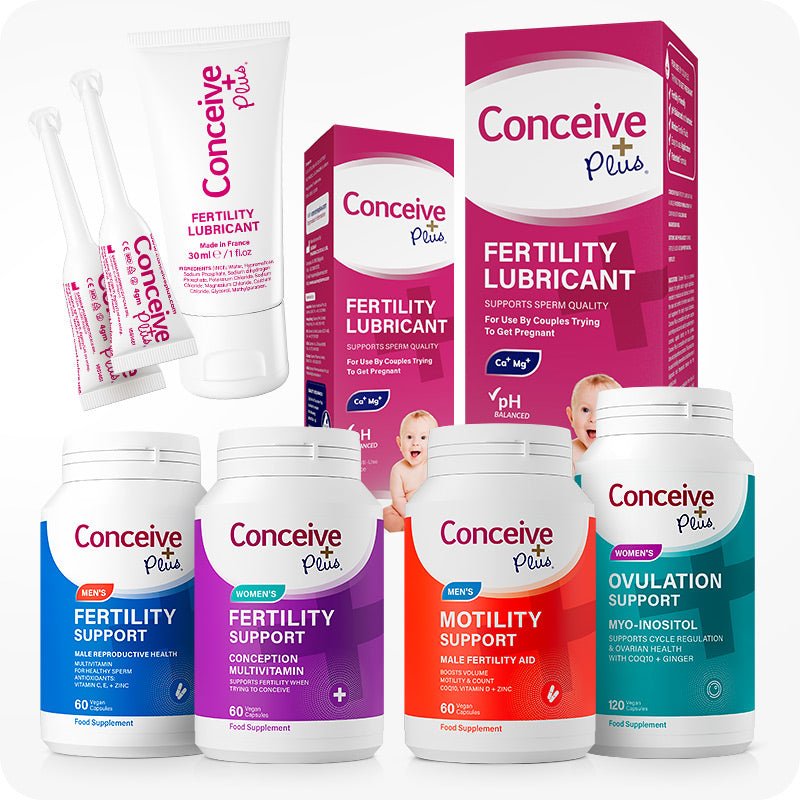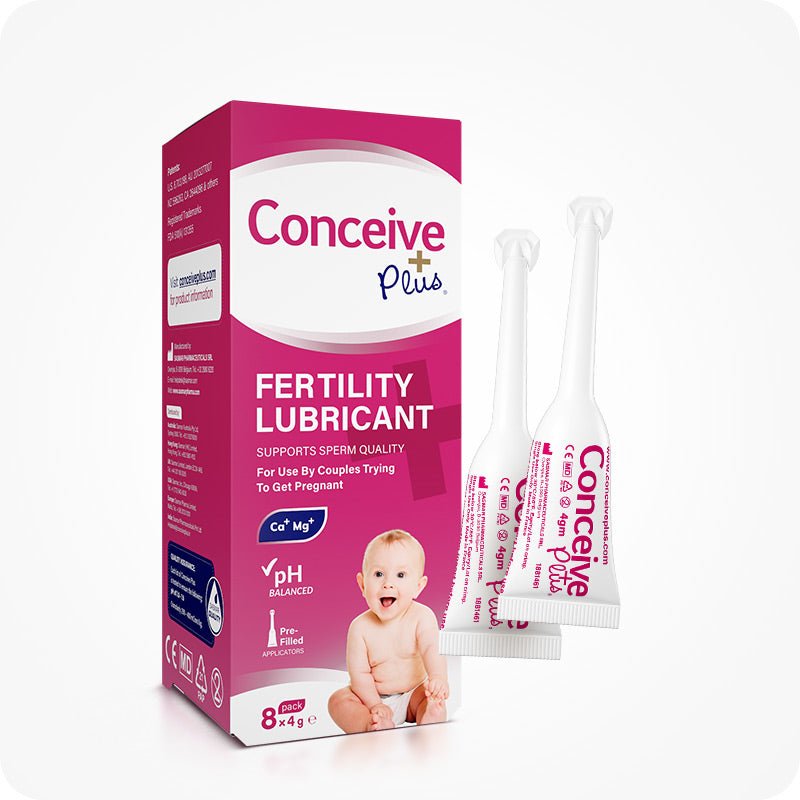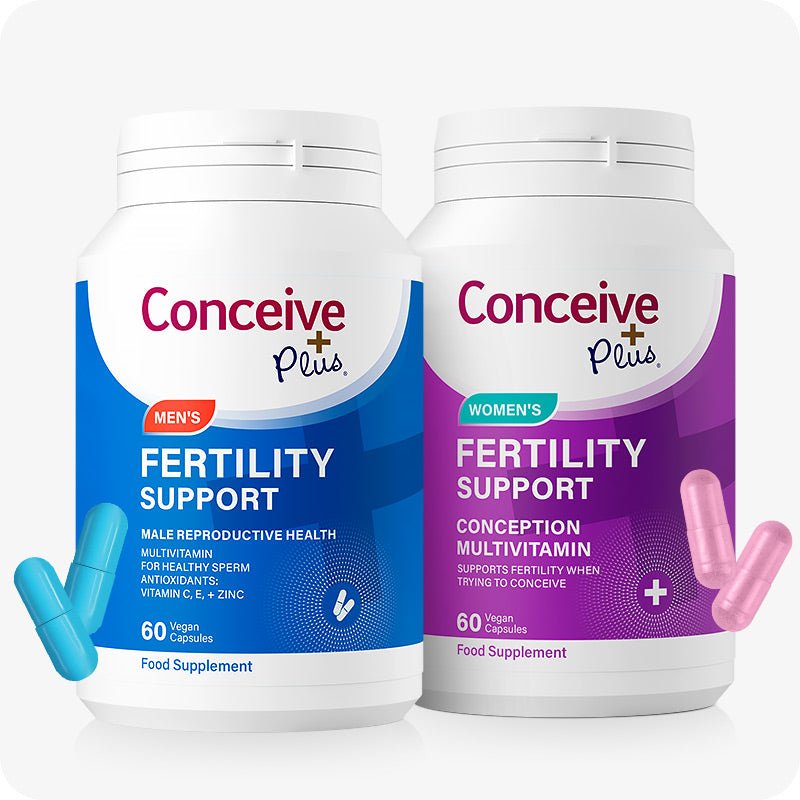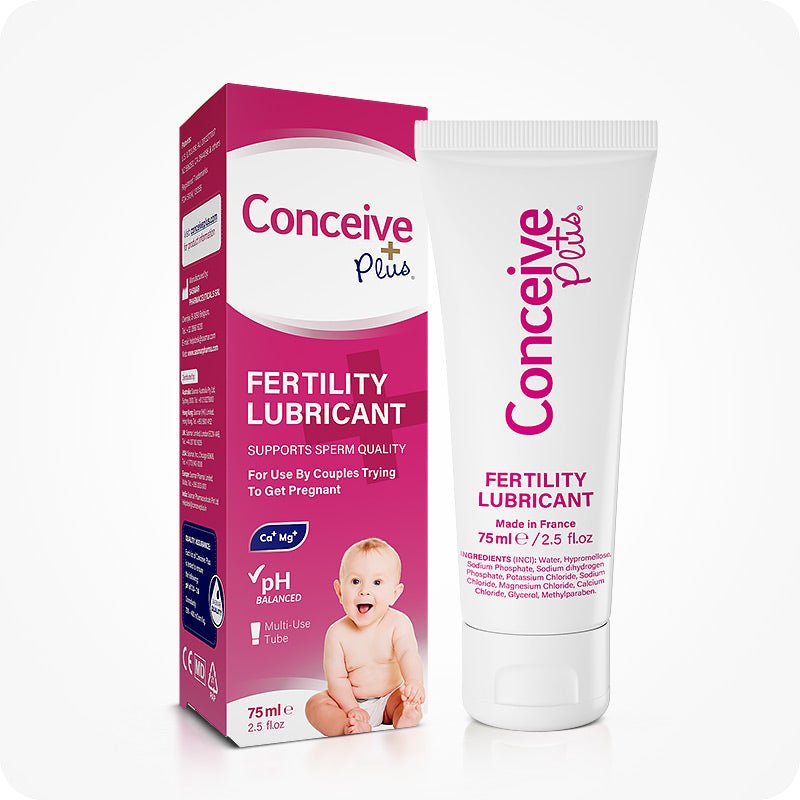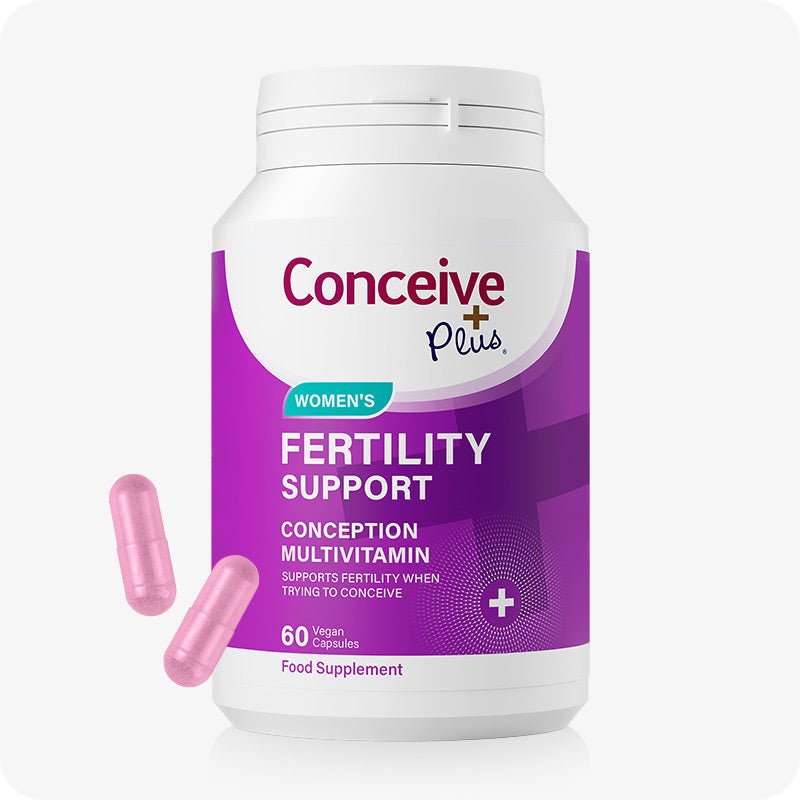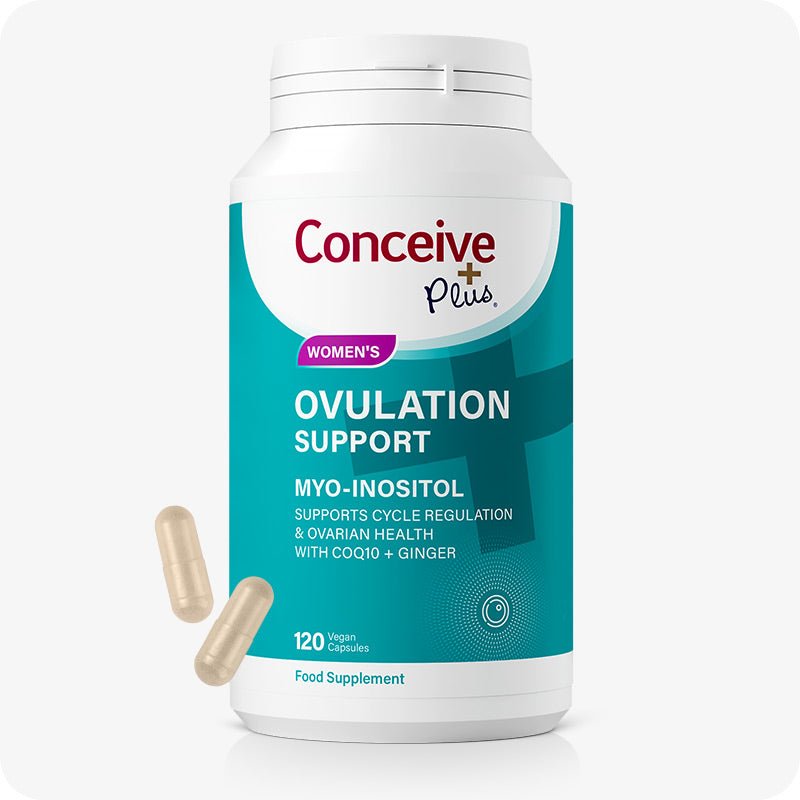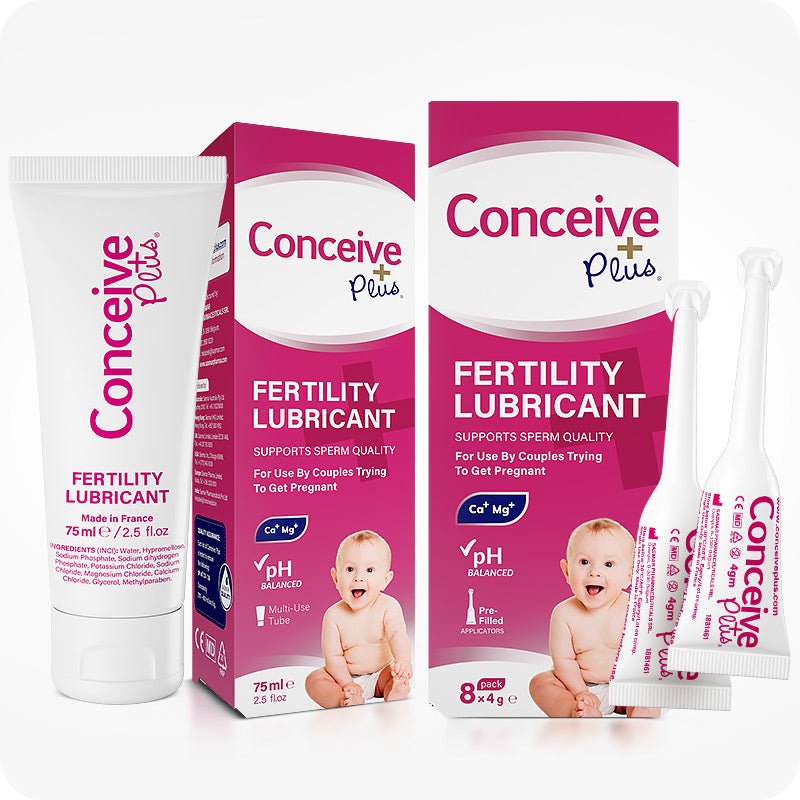How to Get a Girl Pregnant: What Helps & What Doesn’t

When trying to have a baby, knowing how to get pregnant can help you conceive faster. For some couples getting pregnant is easy while for others it can take some time. Although we all learn about the birds and the bees, understanding sperm health and at what stage of the month women are most fertile can significantly improve your chances of conceiving.
If you're wondering how to get a girl pregnant, it starts with timing intercourse during ovulation and ensuring both partners are in good reproductive health. Read on to learn what can hinder your chances of conceiving, how long it takes to get pregnant after intercourse, and how you can increase the likelihood of getting pregnant.
How Long Can It Take to Get Pregnant?
Understanding the basics of pregnancy how to get pregnant can help couples approach conception with greater clarity and realistic expectations. According to medical experts, age matters when it comes to fertility. For instance, with couples under the age of 40, there’s a high possibility of getting pregnant within a year if they’re having regular unprotected sex.
After the age of 35, however, the quality and quantity of women’s eggs start to reduce. Men over 40 experience a similar drop in fertility as the production of sperm decreases and sperm motility (ability to swim) declines [1].
How long it takes to get pregnant can also depend on a couple’s understanding of the menstrual cycle and in particular, due date using ovulation. Ovulation is when a mature egg, ready for fertilisation, is released by an ovary.
Women usually ovulate each month, roughly 11-16 days after their period. But if intercourse does not coincide with ovulation, pregnancy cannot occur.
How to Maximise The Chances of Getting Pregnant
One of the best ways to maximise your chances of getting pregnant is to understand ovulation. As mentioned above, ovulation is when a mature egg is released by an ovary for fertilisation.
Once released from the ovary, a mature egg enters the corresponding fallopian tube and survives there for a brief 12-24 hours. Sperm, on the other hand, can survive within the fallopian tubes for 3-5 days.
Therefore, the chances of getting pregant are increased if sperm are in the fallopian tubes when women ovulate. This period of time is known as a woman’s ‘fertile window’. And to take advantage of this fertile window when trying to get pregnant, it helps for women to know when they ovulate each month.
With an regular 28-day menstrual cycle, ovulation normally happens mid-cycle, 11-16 days after menstruation. For women with a less regular menstrual cycle, fertility specialists recommend using a menstrual calender to track menstruation and ovulation.
Around the time of ovulation, the female body also undergoes some subtle changes caused by hormone fluctuations. And learning to recognise these changes can make it easier for women to to identify their fertile window. For couples planning to conceive, knowing how to maximize the chances of getting pregnant includes tracking ovulation, having regular sex during the fertile window, and maintaining a healthy lifestyle.
The subtle changes that occur in the female body around ovulation include:
A Rise in Basal Body Temperature
Basal body temperature (BBT) [2] is the temperature of the body when it is fully at rest. Because it is known to rise slightly when women ovulate, keeping track of BBT every morning for a few months can help women understand when their fertile window is open.
For instance, women are considered most fertile 2-3 days before their BBT rises during ovulation.
Changes in Cervical Mucus
Also known as vaginal dicharge, the cervial mucus [3] changes throughout the menstrual cycle to aid in reprocution. Before ovulation, it typically becomes wetter and more slippery, similar to raw egg whites. In addition to lubricating the vagina for intercourse, this slippery mucus also helps sperm to swim through the cerivx and into the fallopian tube.
After ovulation, cervical mucus typically becomes drier and almost non-existent until menstruation.
Breast Tenderness
In the run up to ovulation, the production of oestrogen and luteinizing hormone (LH) rise. Increased oestrogen levels can stimulate the breast tissue and result in breast tenderness or sore nipples for many women around the time of ovulation [4].
Getting into the habit of tracking one, or each, of these body changes around ovulation can significantly increase your chances of getting pregnant.
What is An Ovulation Test?
Ovulation tests are designed to help women identify their fertile window. Some ovulation tests detect the rise in LH, which normally occurs 24-36 hours before ovulation and signals a woman’s two most fertile days.
However, given that sperm can live for 3-5 days, other ovulation tests are designed to check for a rise in oestrogen production too, which typically happens a few days before LH surges. Ovulation tests that check for both oestrogen and LH surges help women to identify a longer fertile window of 5-6 days.
How Long Does It Take To Get Pregnant After Sex?
After intercourse, it can take 2-3 weeks for pregnancy to officially happen [5]. Many people wonder how long it will take to get pregnant after intercourse, but it depends on several biological steps including ovulation, fertilisation, and implantation.
Sperm can live in the reproductive tract for 3-5 days and a released egg can live for 12-24 hours. This means that having sex 3-5 days before ovulation can still result in pregnancy, but it doesn’t happen straight away.
Once sperm enters the vagina, it then has to swim through the cervix and up the fallopian tubes to find the egg. If the egg is healthy and the sperm is strong enough to penetrate it, fertilisation occurs.
The fertilised egg then travels through the fallopian tubes toward the uterus and this can take a further 3-4 days. Once it reaches the uterus, it can hover around for a few more days before starting the process of implanting itself into the uterine lining. Although pregnancy officially starts once implantation begins, it can take the fertilised egg 3-4 more days to fully implant. If you're asking after intercourse how long to get pregnant, the full process from fertilisation to implantation can span up to three weeks, depending on your cycle and timing.
Therefore, pregnancy typically occurs 2-3 weeks after a couple has sex.
How Common Is It To Get Pregnant from Precum?
The likelihood of getting pregnant from precum (pre-ejaculatory fluid) are relatively low but not impossible. Precum normally doesn’t contain sperm, but it can pick up any sperm remaining in the urethra from ejaculation before sex.
Although the chances are slim, pregnancy could occur if sperm is present in precum and it enters the vagina around the time that a woman ovulates.
How to Get Pregnant at 43 Fast
Even though it can be more challenging to conceive after 40 due to a decline in the producton of eggs and sperm, it is not impossible. Understanding when you ovulate by recognising the subtle changes in the body, or using an ovulation test, will help to predict your most fertile days.
For those searching how to get a girl pregnant, focusing on ovulation timing, lifestyle improvements, and nutritional support can significantly increase the odds. It’s also helpful to take prenatal vitamins and fertility supplements for men that include the nutrients required to support conception and early pregnancy development.
Women suffering with irregular periods can also benefit from inositol supplements, with the perfect blend of 40:1 Myo-inositol and D-chiro-inositol, to regulate ovulation and improve their chances of conceiving.
Frequently Asked Questions About Getting Pregnant
How to Get Pregnant
Have regular, unprotected intercourse during your fertile window, which is the few days leading up to and including ovulation.
How Easy Is It To Get Pregnant?
How easy it is to get pregnant varies from couple to couple. On average, it takes 6-12 months of regular, unprotected sex to concieve. However, factors like age, health, and timing can impact how easy it is for you. If you have concerns, consult with your doctor.
How Long Does It Take to Get Pregnant?
On average, it takes about 6 to 12 months to get pregnant if you’re having regular, unprotected intercourse.
After Intercourse How Long Does It Take to Get Pregnant?
Following intercourse, fertilisation can occur within a few hours or a few days, but pregnancy doesn’t happen straight away. A woman is pregnant once implantation in the uterine lining has happened and this can take anywhere from 2-3 weeks after sex.
How Long Does it Take to Get Pregnant Usually?
How long it takes to get pregnancy usually depends on having unprotected sex during a woman’s fertile window. On average, fertility specialists suggest that it takes 6-12 months of regular, unprotected intercourse to get pregnant.
How Hard Is It To Get Pregnant?
How hard or easy it is to get pregnant depends on timing and the age & reproductive health of both partners. Having intercourse during ovulation improves the chances but it can take 6-12 months of regular, unprotected sex to conceive.
Pregnancy: How to Get Pregnant
To get pregnant, engage in unprotected sex during your fertile window, monitor ovulation, and maintain a healthy lifestyle.
On Average How Long Does It Take to Get Pregnant?
If you have sex during a woman’s fertile window, pregnancy can happen after just one time. However, on average, fertility specialists determine that it can take about 6 to 12 months of unprotected sex to conceive.
How to Increase Chances of Getting Pregnant?
Increase your chances of getting pregnant by having regular intercourse during your fertile window, tracking ovulation, and leading a healthy lifestyle.
How Long Does It Take After Intercourse to Get Pregnant?
Although fertilisation can occur within a few hours, or a few days after intercourse, it can take 2-3 weeks for implantation to happen and pregnancy to officially occur.
How Long Will it Take to Get Pregnant After Intercourse?
Fertilisation can occur within hours to a day after intercourse if it coincides with ovulation. Implantation usually happens 6-12 days later, with pregnancy tests detecting pregnancy about 1-2 weeks after implantation.
How Long After Sex Does It Take to Get Pregnant?
It can take approximately 2-3 weeks. It can take 1-4 days after sex for sperm to fertilise an egg and a further few days for the fertilised egg to travell through the fallopian tube to the uterus. Once in the uterus, it can take a furthere 6-8 days for the fertilised egg to implant into the uterus lining. And only once implantation is complete, does pregnancy occur.
After Intercourse, How Long to Get Pregnant?
Fertilization may occur within hours to a day after intercourse if it aligns with ovulation. Implantation takes 6-12 days, and pregnancy tests usually detect pregnancy 1-2 weeks after implantation.
How Long After Intercourse Does it Take to Get Pregnant?
After intercourse, fertilisation and implantation must occur before pregnancy is confirmed. If healthy sperm meets a mature egg, the process of fertilistation and implantation can take 2-3 weeks after sex.
How Long After Intercourse to Get Pregnant?
Fertilization can occur within hours to a day after intercourse if it aligns with ovulation. Implantation, which is when the fertilised egg embeds in the uterus wall for development, typically occurs 1-2 weeks after fertilisation.
How Long Does it Usually Take to Get Pregnant?
Couples can get pregnant after having sex just one time if healthy sperm meets and fertilises a mature egg and it implants into the uterine lining 2-3 weeks later. However, due to the various steps required from the male and reproductive systems, it can takes 6 to 12 months for a couple to conceive with regular, unprotected sex.
How Long On Average Does it Take to Get Pregnant?
If you’re having regular, unprotected sex it takes, on average, about 6-12 months to get pregnant. That said, it can also happen the first time you have unprotected intercourse if ovulation has just occured.
How Easy It To Get Pregnant?
Getting pregnant can be straightforward and fast for many, but it often takes 6-12 months of regular, unprotected intercourse. Age, regular ovulation, and sperm health can imact how easy it is to get pregnant.
How Hard It Is To Get Pregnant?
Although it happens quickly for some, conceiving can take 6-12 months of regular unprotected sex for many couples. Timing intercourse around ovulation is key. Difficulties can also arise due to age, fertility issues, or underlying health conditions.
How Hard To Get Pregnant?
Pregnancy can be challenging for some, often taking 6-12 months of regular intercourse. Factors like age, health, and timing can affect how easy or hard it is to get pregnant. If pregnancy doesnt happen after a year, consult with your doctor to understand what could be preventing it.
How Difficult Is It To Get Pregnant?
When both partners are healthy and fertility is not an issue, it is not difficult to get pregnant and it typically happens within 6-12 months of having regular, unprotected sex. Those having difficulty conceiving are encouraged to track ovulation and have regular sex within their fertile window. If this isn’t effective, consider consulting with a healthcare professional.
How To Get Pregnant With A Girl?
Although theories exists that having sex a few days before ovulation can increase the chances of having a girl, there is no eividence to support it. The only way of choosing the gender of a baby is through IVF.
How To Get A Girl Pregnant?
To get someone pregnant, ensure regular, unprotected intercourse during their fertile window. For a baby girl, timing intercourse a few days before ovulation may increase the chances, though it’s not scientifically guaranteed.
How To Get Pregnant With A Boy?
Even though some believe that having sex close to ovulation can increase the chances of having a boy, there is no eividence to support this theory. The only way of choosing the gender of a baby is through IVF.
References
- Your Fertility - Why age matters for men and women who want to have a family - https://www.yourfertility.org.au/everyone/age
- Cleveland Clinic - Basal Body Temperature - https://my.clevelandclinic.org/health/articles/21065-basal-body-temperature
- Planned Parenthood - What’s the Cervical Musuc Method - https://www.plannedparenthood.org/learn/birth-control/fertility-awareness/whats-cervical-mucus-method-fams
- Medical News Today - Breast Tenderness & Sore Nipples - https://www.medicalnewstoday.com/articles/sore-nipples-ovulation#ovulation-and-sore-nipples
- Planned Paretnhood - How Long After Sex Does Pregnancy Occur - https://www.plannedparenthood.org/blog/how-long-after-sex-does-pregnancy-occur
- Medical News Today - What are the chances of getting pregnant from precum? - https://www.medicalnewstoday.com/articles/325356







